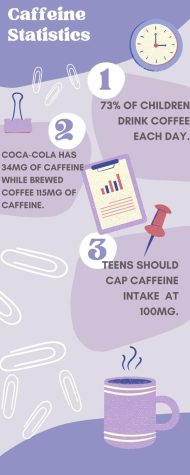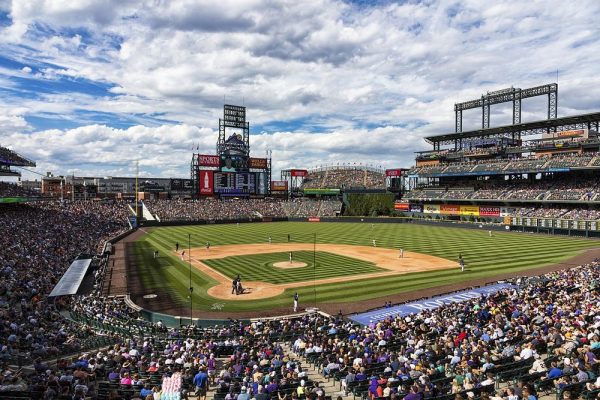The Benefits of Going Caffeine Free

Even though many teens believe that drinking coffee is the best way to wake up and be alert for the school day, caffeine is actually doing more harm than good to the teenage body.
While caffeine products such as coffee may reduce tiredness and allow a body to be more alert, caffeine is actually a stimulant that causes the body to function in bizarre ways that are not all beneficial.
Drinking caffeine, specifically for teenagers can cause irregular heart beating, at a very rapid pace that is abnormal. This stimulant can also cause muscle twitching, the rambling of speech and diuresis, and the loss of calcium which is crucial for the growth and development of adolescents.

According to a Teens Health article on kids drinking caffeine, drinking caffeine increases stress hormones. For kids, this is not good, especially for those who are already under the burden of piles of school work.
Despite all of these downsides, 73% of children drink coffee each day as stated in the VeryWell Health article on the topic.
Coffee and other caffeinated drinks have become the new soda. Teens Health provides a breakdown of various caffeinated drinks with their caffeine level measured in milligrams. A Coca-Cola beverage has 34 mg of caffeine while a brewed coffee contains 115 mg. Yet, a coffee could come in many different forms, depending on the size or type of coffee such as a latte or an espresso drink.
Soda can be addictive and unhealthy, yes, but drinking coffee is no alternative. Caffeine, just like sugar, can be classified as a drug. It is also a food additive that negatively affects glucose control.
In a University of Michigan article titled Parents, “Perk Up to the Dangers of Caffeine for Teens,” it is noted that teens should cap their caffeine intake to 100 mg per day, preferably in the morning if it is being consumed at all. This amount is equivalent to one cup of coffee.
Some teens drink more than one cup of coffee before school making them beyond the threshold of caffeine consumption by 8 am.
Another issue is that teens may use coffee as a breakfast replacement before school. This is a huge issue because not only will it lead to severe weight loss, it can also spike and lower the glucose levels in the bloodstream. Glucose is an essential factor to the functioning of the human body as it provides energy. Caffeine is a short-term energizer, and cannot support the body on its own.

If caffeine causes so many issues to the body, it is certainly harmful to the brain. Teens especially, need to have a precisely fueled brain to start an early morning of a seven-hour education-filled day. Students need to be able to rapidly obtain and absorb the information they learn in school in order to achieve success.
A high or even a low amount of caffeine, specifically of coffee, can cause a student to have a hyper brain, and can blur the thought process necessary for learning the material taught to them.
Without too much caffeine, the body will be functioning in a cleaner manner as will the developing brain at the education level.
Everyone should try to limit their caffeine intake, by trying switching to low caffeine drinks such as decaf coffee or hot cocoa.
If teens want to remain more focused throughout the day and perform better in school, the first step in the right direction is limiting or eliminating caffeine, specifically coffee consumption.

Ariel Greenberg is a Senior at HWRHS and is thrilled to be returning to the General Consensus as the co-editor in chief and staff writer. At the school,...






